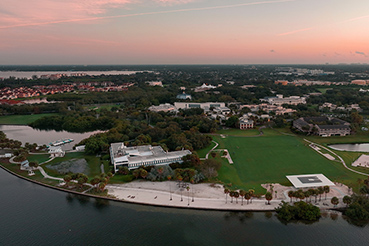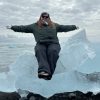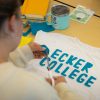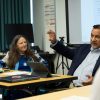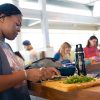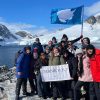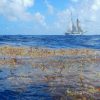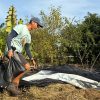If anyone personifies Eckerd College’s motto of “ThinkOutside,” it’s Shanice Piango-Brown, Ph.D, who is beginning her first year as a member of the Eckerd faculty.
“I grew up thinking outside,” she says proudly. “I grew up learning outside. At the beach, around the mangroves and the seagrass. That was my playground.”
As a child in Trinidad and Tobago, Piango-Brown acquired her love of nature largely from her father, a farmer who uses natural methods of growing herbs and spices. “He taught me to be curious,” she adds, “and to take every opportunity to learn.”
Which is exactly what she wants her students to do at Eckerd. An assistant professor of marine science, Piango-Brown is teaching Marine and Freshwater Botany during the fall semester and will teach Biological Oceanography in the spring. She also leads the new Tropical Seaweed Lab that is part of the Galbraith Marine Science Laboratory.
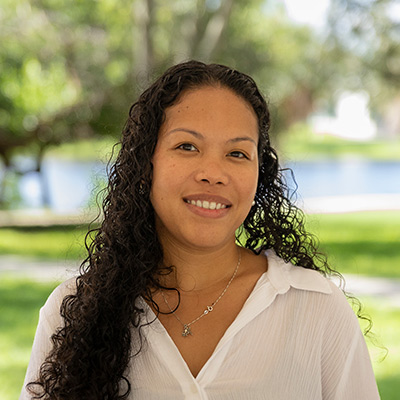
Shanice Piango-Brown, Ph.D.
The lab is an undergraduate-driven research group exploring the biology, biotechnology and climate relevance of seaweeds and seagrasses. Piango-Brown’s work focuses on the role of macroalgae as bioindicators, their interactions with microbial communities and their potential for sustainable aquaculture—particularly in developing applications such as bioplastics, biofuels and nutrient bioextraction.
Piango-Brown says her academic journey is shaped by a deep connection to the Caribbean Sea “and a passion for the environmental resilience of marine ecosystems.” She earned an International Master of Science in marine biodiversity and conservation from Ghent University in Belgium and Paris-Sorbonne University. Her research focused on population genetics of tropical brown algae and their roles in coral-reef phase shifts.
She then earned her Ph.D. in biological sciences from the University of Wisconsin–Milwaukee, where she conducted integrative research on the genomics, microbiomes and long-term viability of giant kelp. She also served as a graduate teaching assistant for the past six years.
Piango-Brown explains that her research integrates field ecology, microbiome sequencing, transcriptomics and long-term cultivation experiments to address fundamental questions in algal biology and applied phycology. She collaborates with the University of Florida on regional initiatives aimed at building a seaweed farming industry in Florida. Her academic and professional work, she says, “also bridges marine genomics with ecosystem health monitoring, using algae as a tool to detect and interpret signals of climate stress, pollution, and restoration potential in coastal systems.”
Her research has been featured in university seminars, public marine science panels, and outreach events promoting seaweed-based innovation and coastal resilience. She is an advocate for citizen science and community-engaged research, and she plans to launch a student-driven coastal-algae-monitoring program in collaboration with local partners in Florida.
“I just want the students to be curious,” she adds, “to go to the beach, pick something up, look at it and ask whether it’s part of the system. Life is always an opportunity to learn.”

